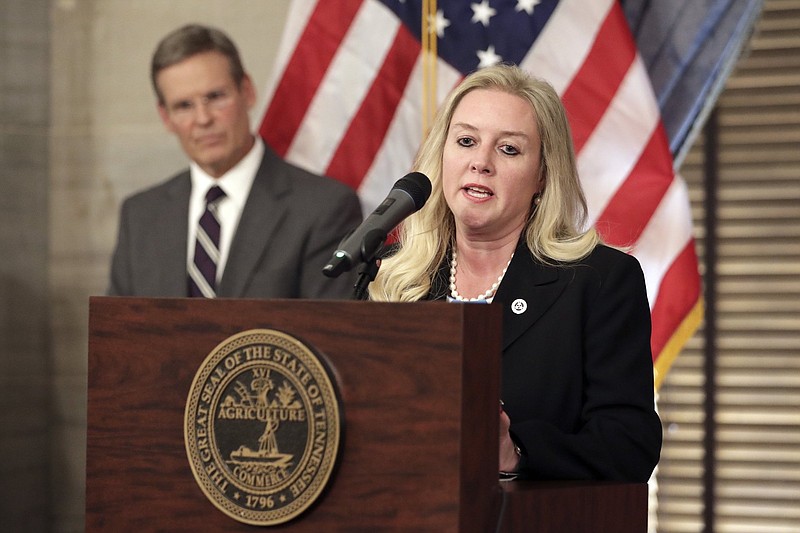Long-awaited oral antiviral pills to combat mild to moderate COVID-19 at home could be available in Tennessee as soon as next week, according to the state's top health official.
Dr. Lisa Piercey, commissioner of the Tennessee Department of Health, said during a news briefing Monday that the U.S. Food and Drug Administration is expected this week to authorize a new treatment called molnupiravir from the drug company Merck, which reduces the risk of COVID-19 hospitalization and death by around 30% if taken within the first five days of illness.
In the coming weeks, the FDA is expected to review a similar pill from Pfizer called Paxlovid that, according to the drug company, reduces COVID-19 hospitalization and death by nearly 90% if taken within three days. Paxlovid likely won't be available in Tennessee until January, Piercey said.
The drugs are for adults at high risk for serious infections, such as those with obesity, heart disease and lung disease.
Piercey compared them to Tamiflu, a well-known pill that's commonly prescribed to treat influenza in outpatient settings.
"You get the pills a day or two after you get the virus, and you take them and they either reduce your symptoms and/or shorten the course of the disease," she said. "These are a similar types of product for COVID. The main thing with COVID, just like with flu, but specifically with COVID - the thing that we're looking for here is a reduction in hospitalizations and deaths."
Convenient oral antiviral medications to treat COVID-19 could be game-changers for improving the course of the pandemic. Currently, monoclonal antibodies are the only FDA-authorized treatment for non-hospitalized COVID-19 patients, but unlike a pill that can be obtained with a prescription through retail pharmacies, monoclonal antibodies are typically administered in a clinical setting through intravenous infusion.
However, Piercey acknowledged that getting the pills to Tennesseans in the timeframe needed to be effective could be "really tricky" given that many people wait a few days after symptoms start before seeking a COVID-19 test. If the test isn't rapid, patients could wind up waiting too late for a diagnosis.
"Testing is going to be a really important component - and rapid testing specifically is going to be a really important component of these antiviral medications," she said.
Though rapid tests have become more widespread, residents can still encounter barriers to testing, including cost and lack of availability.
Similar to the early days of COVID-19 vaccines, Piercey said the state's supply of the drugs will at first be extremely limited.
"We don't know how much we're going to be getting. We know we're going to be getting about 2% of the nation's supply. That could be as little as a couple thousand courses. It could be more than that, but we're really doing a lot of contingency planning based on the amount that we get," she said, adding that over the next several days the department will distribute more information about where the drugs will be placed and who will be eligible.
"When you have a limited supply, you have to prioritize who's at highest risk and who gets it first. This will be no different. It is my hope and prayer that this ramps up very, very quickly. but initially, it will be in limited locations and limited on who can get it," she said.
The FDA advisory panel narrowly voted to recommend Merck's treatment, expressing concern over its limited efficacy and need for additional safety research, primarily around use during pregnancy and potential reproductive harm.
Contact Elizabeth Fite at efite@timesfreepress.com or follow her on Twitter @ecfite.
